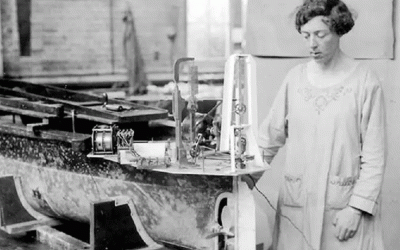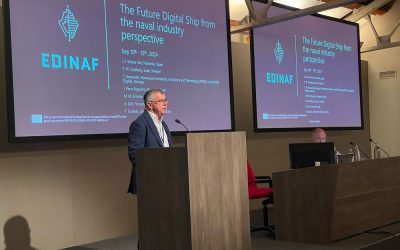Ship & Boat International: eNews December 2017
Switzerland-based RKLAB is developing a self-pressurising fuel injector, which is claimed to offer a dramatic reduction in diesel engine emissions with improved fuel efficiency, writes David Tinsley. The RK Injector has been designed to receive its initial pressure from the piston compression in the combustion chamber. This is multiplied within the injector, forcing fuel into the combustion chamber through 180 minuscule holes at unprecedented pressure and in tinier droplet sizes, such that combustion takes place at much lower temperatures and with a 15% or more gain in efficiency. The optimal mixing conditions and lower combustion temperatures inhibit NOx formation and particulate matter (PM) emissions.
The RK Injector is attributed with being “a significant technological advancement from the current common rail paradigm,” giving thermal efficiency and emission benefits while entailing reduced complexity relative to common rail injection.
Prototype injector units are currently being tested in the automotive sector, but the company also has its sights set on the marine market. As a consequence, RKLAB is developing a marine-specific division in Finland, due to open in February 2018. This will work closely with the UK consultancy Powertrain Technology and with RKLAB’s development partners, including the Technical Research Centre of Finland (VTT). The division is being structured to create the possibility to partner with marine stakeholders, such as fuel suppliers, engine manufacturers and shipping companies.
The company tells Ship & Boat International: “For the vast majority of medium- and high-speed marine diesel engines, the RK Injector needs very few modifications from the automotive specification. The combustion resultant from the use of the RK Injector closely mirrors the natural combustion curve, enabling more power when it is needed, thus responding to the widely variable loads and high-load continuous cycles typical in marine applications.”
The system is intended for a range of fuels, from bio-fuel to heavy fuel oil (HFO). However, RKLAB acknowledges that the main technical challenge facing the new division is the wide variety of fuel sources that the injector may encounter over the course of its life, necessitating an ability to deal with a broad spectrum of fuel specification and quality issues. “In particular, the use of HFO specifications encountered globally presents a unique challenge to the RK Injector and will require expertise in metallurgy, fuel heating, filtering and treatment in order for the fuel to be able to be injected successfully," RKLAB comments.
The initial commercial focus in the marine market will be on retrofit opportunities, with a view to the first such installations in early 2019. Injector retrofits will be promoted as cost- and space-saving alternatives to exhaust aftertreatment measures for existing vessels, so as to meet mandatory emission standards.
The dispersal nozzle of the RK Injector creates a fuel spray pattern of about 180 tiny droplets at a pressure of 5,000-plus bar. The enhanced atomisation of the fuel leads to more efficient, more complete combustion and a lower combustion temperature.
As the injector takes its initial signal (compression pressure) from the combustion chamber, it will only provide the precise amount of fuel that can effectively be burnt, optimising the injection rate and avoiding over-fuelling or wasting fuel. This natural relationship with the compression chamber also creates the possibility for electronic control, using proven solenoid valve technology.




